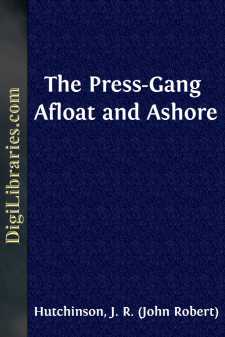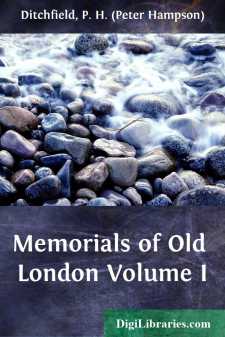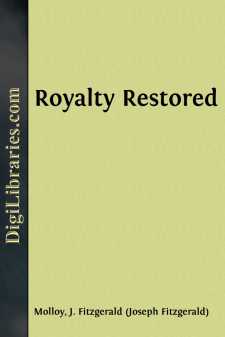History
- Africa 30
- Americas (North Central South West Indies) 50
- Ancient 68
- Asia 58
- Australia & New Zealand 8
- Canada 41
- Caribbean & West Indies 1
- Civilization 20
- Eastern Europe 12
- Europe
- Expeditions & Discoveries 60
- General 77
- Historical Geography 1
- Jewish 9
- Latin America 3
- Medieval 8
- Middle East 13
- Military 248
- Revolutionary 8
- Study & Teaching 5
- United States 353
- Western Europe 56
- World 13
Europe Books
Sort by:
by:
George Arbuthnot
CHAPTER I. Object of Travels—Start—Mad Woman—Italian Patriot—Zara—Sebenico—Falls of Kerka—Dalmatian Boatmen—French Policy and Austrian Prospects—Spalatro—Palace of Diocletian—Lissa—Naval Action—Gravosa—Ragusa—Dalmatian Hotel—Change of Plans. 'Omer Pacha will proceed with the army of Roumelia to quell the disturbance in Herzegovina.' Such, I believe, was the...
more...
by:
Peter Langley
FOREWORD I would merely say a few words in justification of the Historical Romance, in its relation to history. Any one, with no preceding profound study of history, who takes a few well-known historical facts as a foundation for an airy castle of romantic invention and fantastic adventure, may easily write an Historical Romance; for him history is only the nude manikin which he clothes and adorns...
more...
by:
Daniel Defoe
PREFACE The formality of a preface to this little book might have been very well omitted, if it were not to gratify the curiosity of some inquisitive people, who, I foresee, will be apt to make objections against the reality of the narrative. Indeed the public has too often been imposed upon by fictitious stories, and some of a very late date, so that I think myself obliged by the usual respect which...
more...
CHAPTER I. HOW THE PRESS-GANG CAME IN. The practice of pressing men—that is to say, of taking by intimidation or force those who will not volunteer—would seem to have been world-wide in its adoption. Wherever man desired to have a thing done, and was powerful enough to insure the doing of it, there he attained his end by the simple expedient of compelling others to do for him what he, unaided,...
more...
THE FIRST CHAPTER. Now Plautius had much adoo to find out the Britains in their lurking holes and couerts; howbeit when he had traced them out, first he vanquished Cataratacus, and after Togodumnus the sonnes of Cynobellinus: for their father was dead not verie long before. These therefore fléeing their waies, Plautus receiued part of the people called Bodumni Catuellani Bodumni (which were subiects...
more...
I.—Celtic London When we see the words "Celtic London" at the head of a chapter we naturally feel inclined to ask, "Was there such a place? Was there any Celtic London?" Although it is almost impossible to answer such a question by either "yes" or "no," it may be worth while to examine it briefly before passing on to the domains of authentic history. In the first...
more...
by:
F. Jordan
FERDINAND VON SCHILL. Profound silence reigned in the valleys and gorges of Jena and Auerstadt. The battles were over. The victorious French had marched to Jena to repose for a few days, while the defeated Prussians had fled to Weimar, or were wandering across the fields and in the mountains, anxiously seeking for inaccessible places where they might conceal their presence from the pursuing enemy. A...
more...
MADAME:—I lay it down as a maxim, that men who enter the service of the State should make it their chief study to set out in the world with some notable act which may strike the imagination of the people, and cause themselves to be discussed. Thus I preached first upon All Saints' Day, before an audience which could not but be numerous in a populous city, where it is a wonder to see the...
more...
CHAPTER I. Cromwell is sick unto death.—Fears and suspicions.—Killing noMurder.—A memorable storm.—The end of all.—Richard Cromwellmade Protector.—He refuses to shed blood.—Disturbance anddissatisfaction.—Downfall of Richard.—Charles Stuart proclaimedking.—Rejoicement of the nation.—The king comes into his own.—Entryinto London.—Public joy and satisfaction. On the 30th of...
more...
by:
Anthony Hamilton
OTHER LOVE INTRIGUES AT THE ENGLISH COURT. The conversation before related was agreeable only to Miss Hobart; for if Miss Temple was entertained with its commencement, she was so much the more irritated by its conclusion this indignation was succeeded by the curiosity of knowing the reason why, if Sidney had a real esteem for her, she should not be allowed to pay some attention to him. As soon as they...
more...









![The Memoirs of Cardinal de Retz - Volume 2 [Historic court memoirs]](https://digilibraries-com.s3.eu-central-1.amazonaws.com/covers/547d283e-2e95-4a35-bf95-e573caadc705.jpg)

